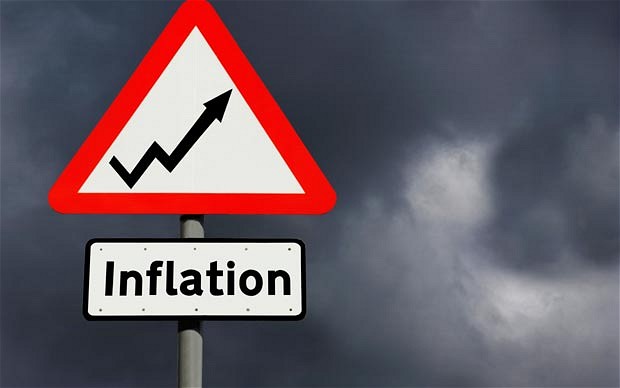ECONOMIC analysts have warned that Zimbabwe's year-on-year inflation, which slowed down to 0,14 for the month of July from 0,31 percent in June, would still trend upwards by year-end due to worsening foreign currency shortages and exchange premiums paid by importers on the black market.
On a month-on-month basis, the inflation rate stood at -0,36 percent, shedding 0,12 percentage points on the June rate of -0,24 percent.
Analyst, Evonia Muzondo, said inflation would increase as long as companies continued to source foreign currency from the parallel market.
"The US dollar is now very scarce on the formal market and many companies need to import. The only source of foreign currency is the black market. The more the demand for the US dollar the higher the discount rates would be. This would result to an upward review of prices of goods and services," Muzondo told The Financial Gazette.
Zimbabwe's government is projecting an annual inflation rate of between two percent and three percent this year, in line with the regional benchmark, after the country snapped a two-year deflation streak in February.
Economist, Trust Chikohora, said inflation was likely to maintain upward momentum due to continued price increases reflecting black market rates.
"Most retailers are passing on these costs to the consumer. This is stoking inflation," he said.
A British market research firm last week warned that printing large amounts of bond notes could push inflation to 4,5 percent by year-end.
Zimbabwe recently announced that it would print a new batch of bond notes under a $300 million facility by the African Export and Import Bank (Afreximbank), which has bankrolled another $200 million facility that resulted in the introduction of the bond notes in November. The country has witnessed a surge in basic food prices since the introduction of bond notes on November 28, 2016.
Brains Muchemwa, also an economist, said despite the inflation rate slowing down in July, an upward trend would prevail as long as foreign currency shortages persist.
"On account of the worsening foreign currency shortages and significant premiums importers are paying to access foreign currency, the inflation outlook is positive," he said.
Reserve Bank of Zimbabwe (RBZ) governor John Mangudya last month said although inflation was expected to remain in the positive territory throughout this year, he wants to keep it within the Southern African Development Community inflation benchmark of between three to seven percent.
The International Monetary Fund recently forecast that inflation in Zimbabwe would end at seven percent by December, largely due to worsening foreign currency shortages that have resulted in a foreign exchange black market.
However, international think-tank NKC Research has a more conservative view, projecting inflation to average roughly one percent this year.
Zimbabwe's annual headline inflation rate, which had been in deflation since September 2014, moved into positive territory from -0,65 percent in January this year to 0,14 percent in July as a result of an expansionary fiscal policy stance which saw the fiscal deficit rising to $1,4 billion or 10 percent of GDP last year.
The deficit emanated mainly from drought-related expenditures, legacy debt and agricultural expenditure and was financed from domestic sources through the issuance of Treasury bills and reliance on the RBZ's overdraft facility.
- fingaz
 Concern over Masvingo black market
Concern over Masvingo black market  Kenya declares three days of mourning for Mugabe
Kenya declares three days of mourning for Mugabe  UK's Boris Johnson quits over Brexit stretegy
UK's Boris Johnson quits over Brexit stretegy  SecZim licences VFEX
SecZim licences VFEX  Zimbabwe abandons debt relief initiative
Zimbabwe abandons debt relief initiative  European Investment Bank warms up to Zimbabwe
European Investment Bank warms up to Zimbabwe  Young Investment Professional (YIP) Graduate Programme 2019
Young Investment Professional (YIP) Graduate Programme 2019 











 Young Investment Professional (YIP) Graduate Programme 2019
Young Investment Professional (YIP) Graduate Programme 2019
Editor's Pick